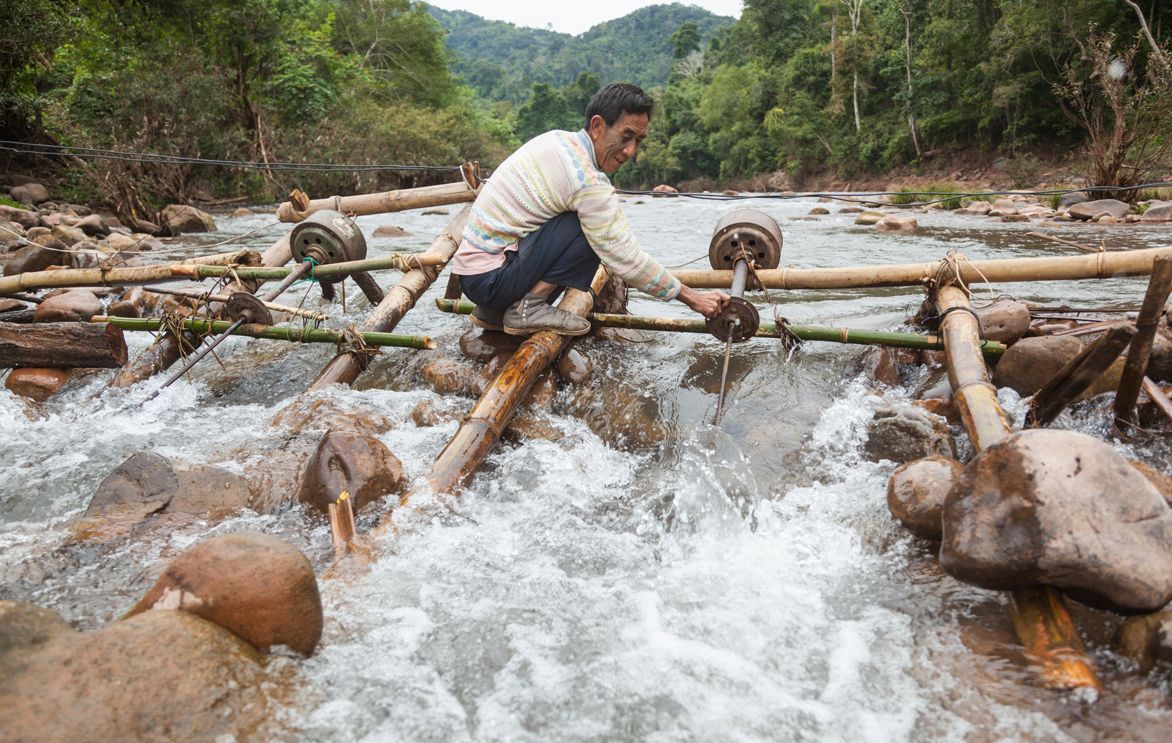Author: edit_riverlab
SFEI’s Resilient Landscapes program is hiring for an applied ecologist and a physical scientist. The positions are at the Associate Environmental Scientist level (MS/PhD with some experience) and will work in a dynamic team setting advancing strategies for climate adaptation, urban ecology and ecosystem services, and stream/wetland restoration.

As demand for clean energy soars across many developing nations, governments face difficult decisions. Should they spend billions of dollars on hydropower, or invest in emerging solar, wind and energy-storage technologies? With the price of renewable energy dropping over the past decade, strategic replacement of energy from future dam sites with renewable energy sources is becoming more economically viable.
UC Berkeley Riverlab PostDoc Alum Rafael Schmitt, with collaborators Noah Kittner, Mathias Kondolf, and Daniel Kammen, had the opportunity to highlight this vision in Nature, as a call to action for the participants of the bi-annual International Hydropower Congress. This article describes how low-carbon alternatives to hydro power can be coupled with strategic dam planning to maximize free-flowing rivers while providing low-carbon energy.
Michel Lussault, University of Lyon
Monday 22 April 4-530pm, 315A Wurster Hall
A 2004 publication of the IGBP (Global Change and the Earth System) postulated that the Anthropocene really began with what was called “the great acceleration” of the 1950s, based on a clear break in the evolution of societies and the economy, and in the functioning of the earth system. Lussault argues that this break was linked to the start of massive urbanization of the planet. The Anthropocene would thus be an “urbanocene”, that is to say, a spectacular evolution of the earth system, with urbanization as a primary driver. The seminar is sponsored by the UC Berkeley Global Metropolitan Studies Program and co-sponsored by the Institute of International Studies interdisciplinary faculty seminar Water Management: Past and Future Adaptation.
Michel Lussault is a geographer and professor of urban global studies at the University of Lyon, (Ecole Normale Supérieure), France. A well-known specialist in urban studies and theoretical geography, he has published many books and scientific papers, and given lectures in universities throughout France and elsewhere. Since 2005 his research has centered on global urbanization as a new “milieu” for people, issues of urban vulnerability, “spatial care” as a framework for understanding global change adaptation, and the urban anthropocene. He received an 8-year grant from the French National Program “Investments For Future” to create a new intensive and elite scientific and graduation program, Lyon School of Urban Anthropocene Studies (https://ecoleurbainedelyon.universite-lyon.fr).
Alameda County Flood Control Zone 7 is seeking applications for 2 summer internship positions to work on topics in Flood Control and Integrated Planning. Note that the job title is “Engineer Intern” but you don’t actually need an engineering degree, nor be an engineering student in order to qualify as long as there is relevant coursework (such as LA122). They have had good experience with environmental science majors in the past. See the job annct here.
Yekang Ko, University of Oregon
Monday 11 February 2019, 2-330 pm, Rm 315A Wurster Hall
Boosting the green economy is a goal for many nations in the era of climate change, and a number of green policies have been bursting around the world in the last decade. The efforts of South Korea include the world’s largest tidal power generation along the west coast, a new green city incorporating sustainable urban design principles, and a nationwide river restoration program. These green initiatives have been widely touted by international organizations and the media as “Green New Deals” or have received a major urban design award. In spite of this recognition, these efforts have been highly controversial and severely criticized by many scholars, environmental groups, and the public because of their substantial ecological impacts, particularly on endangered wildlife habitats and internationally recognized wetlands that host tens of thousands of migratory birds.
Ko critically reviews three cases of green initiatives in South Korea: tidal power plants plans, Songdo International City, and the Four Major Rivers Restoration Project that have been pursued since 2008, focusing on lessons learned from the past decade, on-going issues, and new policy directions in water and coastal management. Given the urgency of climate change, the conflicts among different “green” approaches are expected to increasingly occur around the world. Ko points out the implications for wise decision-making and planning in comparable cases.
Yekang Ko is an Assistant Professor of Landscape Architecture at the University of Oregon where she teaches urban sustainability, energy landscapes, and landscape planning analysis. She obtained her Ph.D. in Landscape Architecture and Environmental Planning from UC Berkeley in 2012. Her research focuses on urban energy planning, green infrastructure assessment, and physical planning and design for climate change mitigation and adaptation, with a geographic focus on the Asia-Pacific region. She is the BLA program director and the Director of the Sustainable Cities and Landscapes Hub of the Association of Pacific Rim Universities (APRU).
This seminar is part of the interdisciplinary faculty seminar series, Water Management: Past and Future Adaptation, presented under the auspices of the UC Berkeley Institute of International Studies. As both the developed and developing world confront intensifying demands on rivers and other water resources, impacts are evident from extractions of water for human uses, proliferation of dams, mining sediments from river beds, and intensified land-use impacts, all exacerbated by climate change. Accelerated erosion of coasts and deltas (e.g., from sediment starvation, groundwater pumping, accelerated sea-level rise) are among the manifestations of these impacts. Our seminar takes an interdisciplinary approach these challenges by examining how societies have adapted to variability in the past (uncertainty in water supply, flood risk, etc) and considers the tools we have to manage future variability in river flows and sediment loads, including variability in water supplies, increased flood risk, and the existential threat to many coastal and riverine areas.